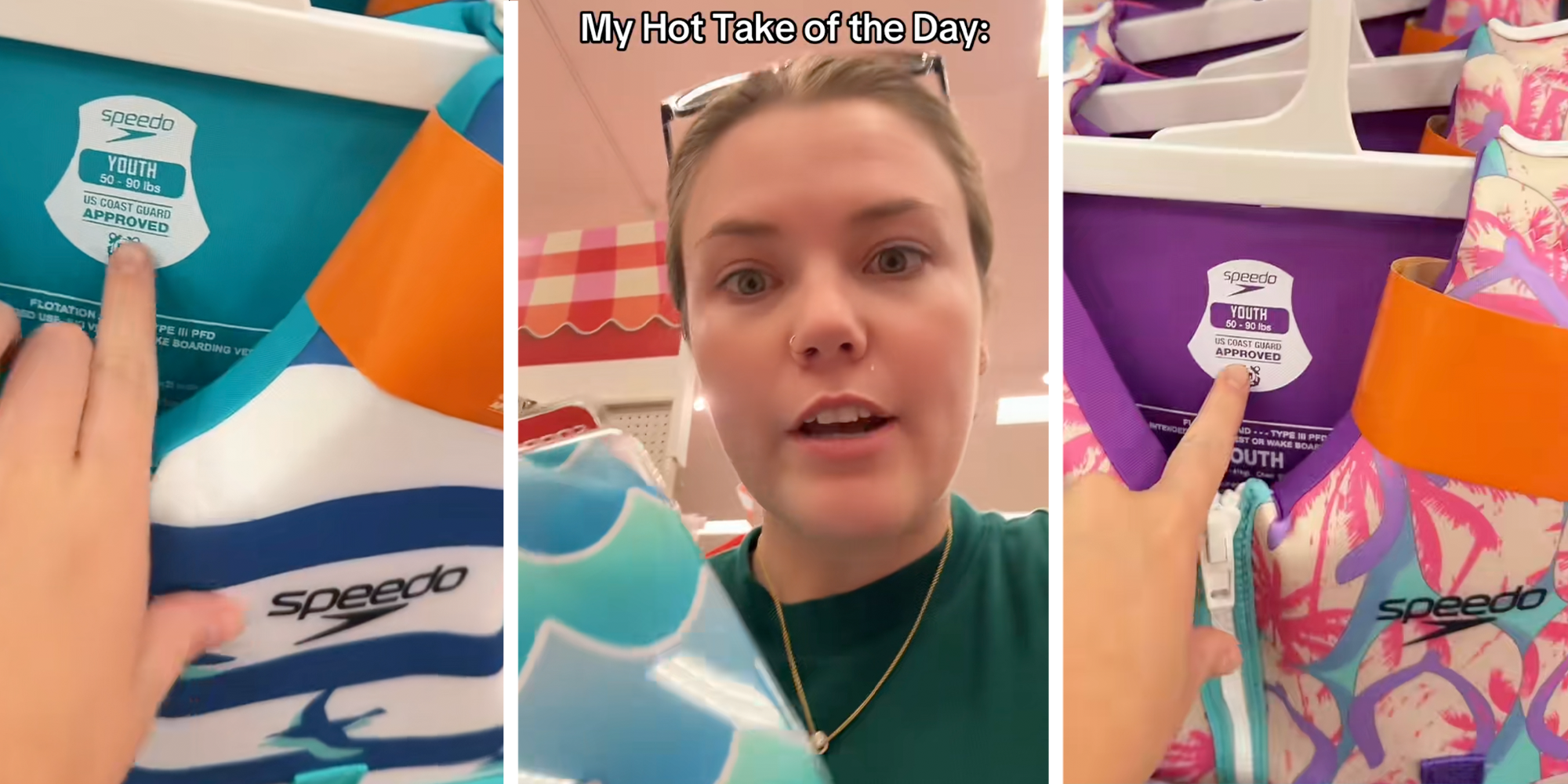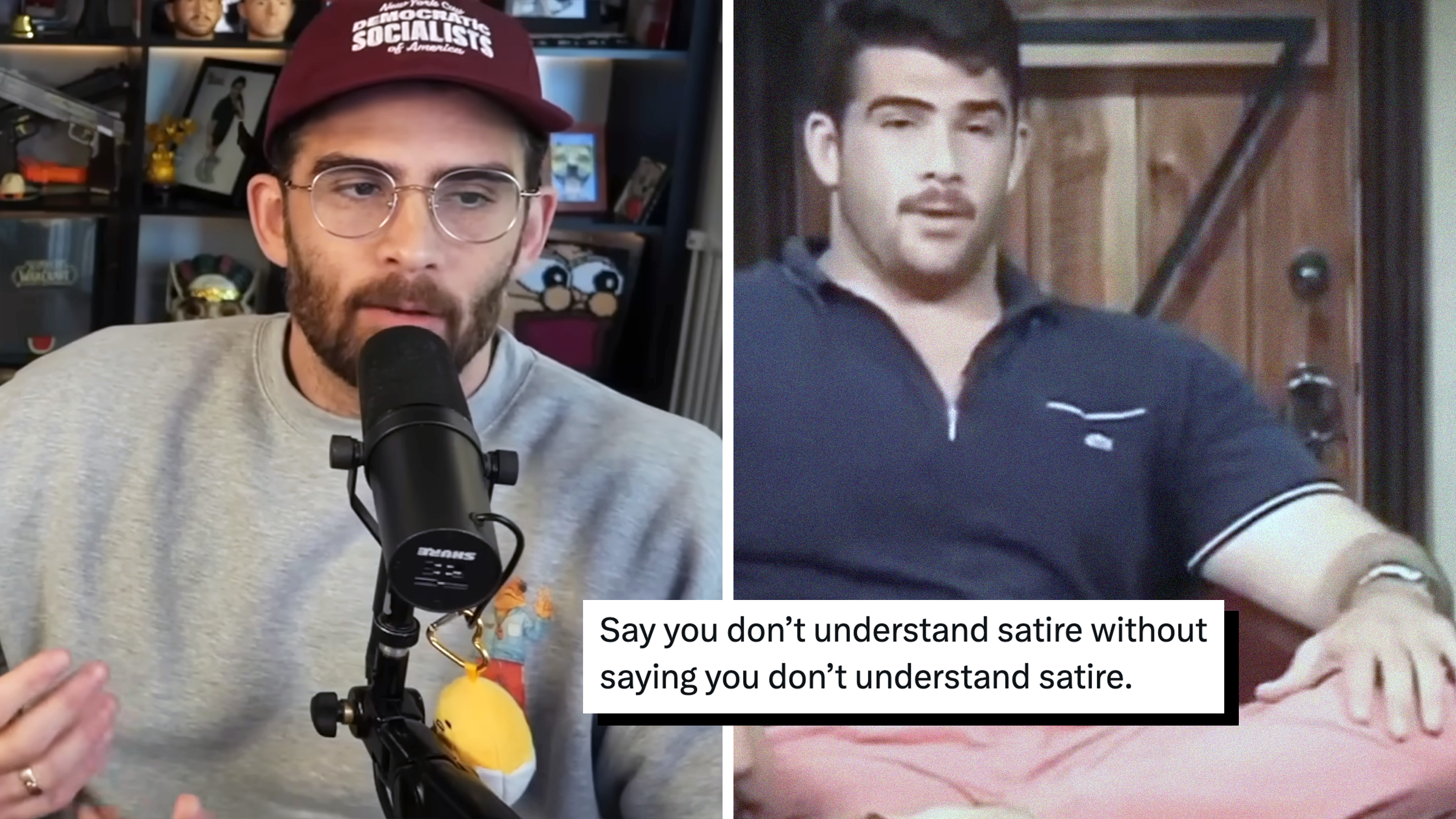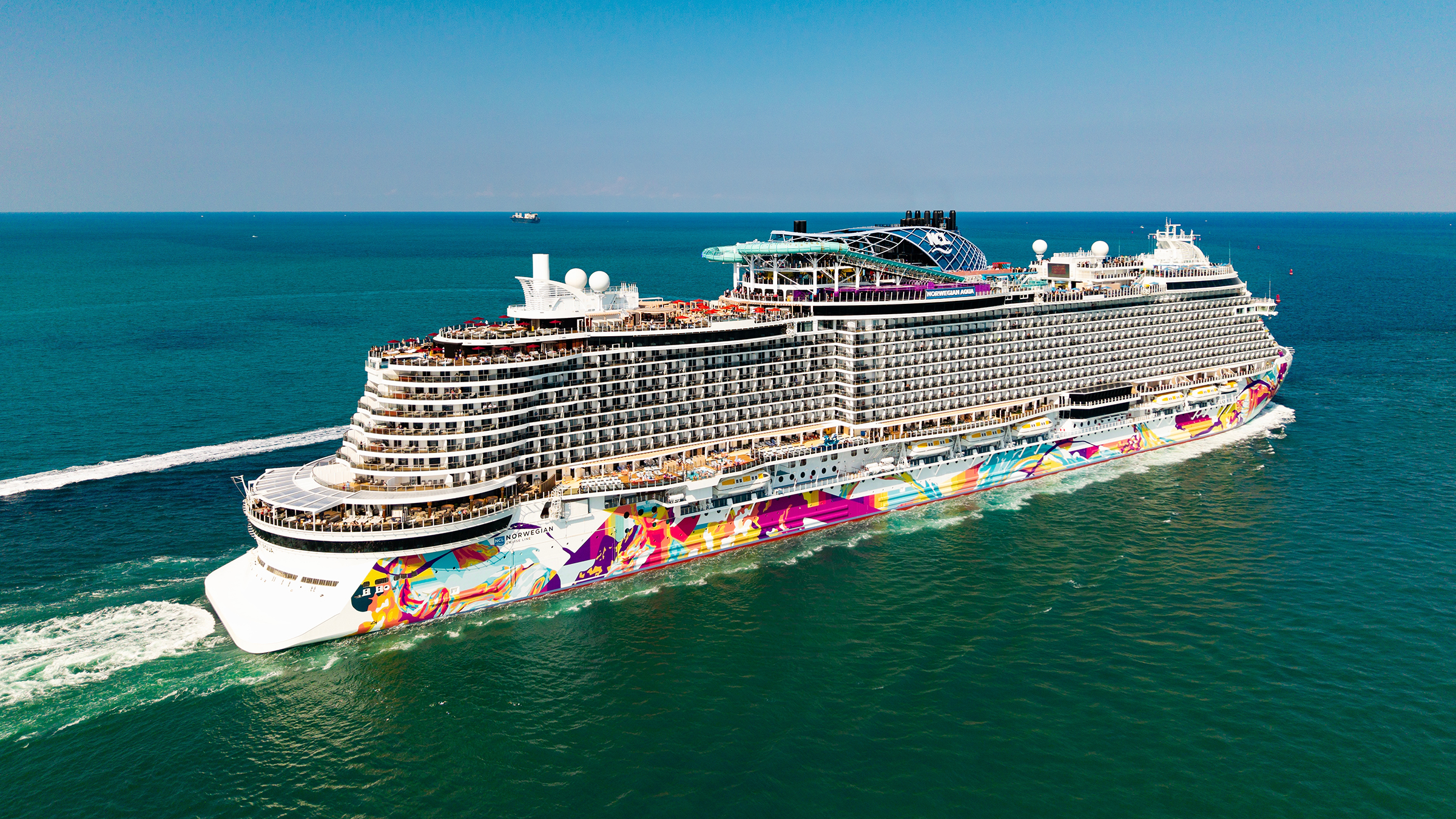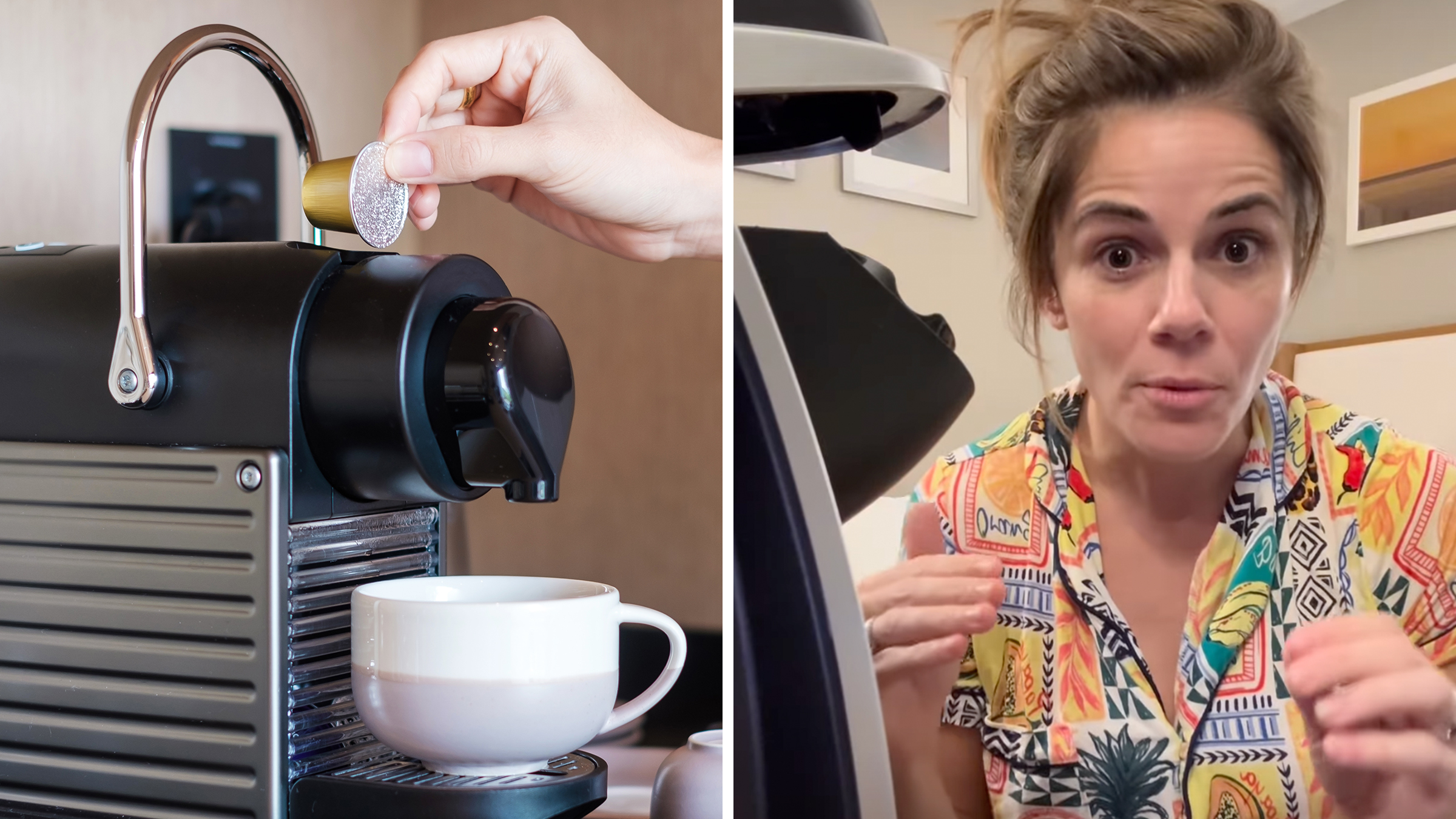As summer heats up, many are heading to their local public pools for a swim. This has brought with it a wide variety of concerns.
First, some are worried about the cleanliness of their local pool, as several internet users have warned against public pools due to their poor cleaning practices. Second, others are worried about their children, as they want them to be able to relax in the pool, but are concerned about their lack of swimming ability.
For these children, a parent might want to consider a PFD, or “personal flotation device.” However, as TikTok user Madison (@msmadisonrae) recently revealed in a video with over 177 thousand views, not all flotation devices are created equal.
Which flotation device should you not buy for your child?
In her video, Madison shows herself standing in an aisle selling PFDs at Target.
“Trickery!” she exclaims. “Trickery is going on at Target. Let me show you.”
As the video progresses, she shows a variety of life jackets, all with markings indicating that they are approved for use by the Coast Guard.
However, among the Coast Guard-approved life jackets is another item.
“Water wings,” states Madison, her voice dripping with disdain. “Do not buy these. You are teaching your child how to drown, not swim. Sincerely, an aquatic professional.”
Why are water wings so dangerous?
As noted by TODAY, floaties and water wings are not considered safe personal flotation devices. Despite this, two-thirds of parents incorrectly believe that such devices will keep their child safe in the water.
There are a few problems with floaties/water wings. First, as explained by TODAY, they can slip off with relative ease, putting one’s child in danger.
Second, while they may keep a child’s head above water, they do so in a way that is dissimilar to swimming. As a result, water wings may not be effective in teaching one’s child how to swim — and, in the worst cases, it can teach them bad habits that may impact their ability to save themselves in the event that they need to swim without them, as explained by Madison in a follow-up video.
Madison further explains that, while flotation devices can be helpful in getting a child used to the water, and ensuring safety while a child is in the water, they should not be used when a child is “actively engaging in swim lessons” or, potentially, when engaging in learning exercises within arm’s reach of a parent or guardian.
Madison responds
In an Instagram DM exchange with the Daily Dot, Madison said that she did not believe that water wings were appropriate at any time.
“Water wings, especially on little kids, take up their entire upper arm with limits their ability to move their arms in a proper swimming motion. They also fail, meaning they slip off, especially in deeper water when the child is jumping into the pool,” she explained.
@msmadisonrae COAST GUARD APPROVED LIFEJACKETS ONLY. • Water wings suck. • #lifeguard #swimming #waterwings #cpr #Tatcha #fyp #foryoupage #trend #trending
♬ suono originale - New60s70srevenge - New60s70srevenge
“The only time I have allowed water wings was for a comfort scenario — a young adult individual with Down syndrome who was terrified to get into the pool without water wings,” she continued. “Their family stayed within arms of the individual and promoted water safety in other ways, so there wasn’t an issue.”
As for why they’re still for sale, Madison says there are a variety of factors at play.
“I think they are still available for sale because there is little to no legal regulations when it comes to flotation devices, and they are nostalgic,” she wrote.
“Parents who grew up using water wings in the 80s/ 90s and even early 2000s see them and think that water wings are safe, or that they promote better swimming due to their smaller size. However, this couldn’t be further from the truth. The only way to stay safe in and around water, especially for week and non-swimmers, is to wear a Coast Guard-approved lifejacket.”
Commenters share their thoughts
In the comments section, users offered their own views on water wings and the use of PFDs in a pool.
“It’s not trickery, parents aren’t taking the time to teach their kids how to swim anymore,” wrote a user. “Those are supposed to help teach a kid, not be used as a babysitter in the pool.”
“Yes, every swim instructor preach is not to use these. Parents don’t listen, and then they have children who are terrified of the water,” added another. “[Teach your] kid had to swim safely first!”
“I am a lifeguard, water polo player, and swim team member. I promise life jackets are better,” detailed a third. “Also teach them to be flat on the water, hips need to be at the surface, the more vertical you are, the worse off you will be.”
We’ve reached out to Target via email.
The internet is chaotic—but we’ll break it down for you in one daily email. Sign up for the Daily Dot’s web_crawlr newsletter here.






